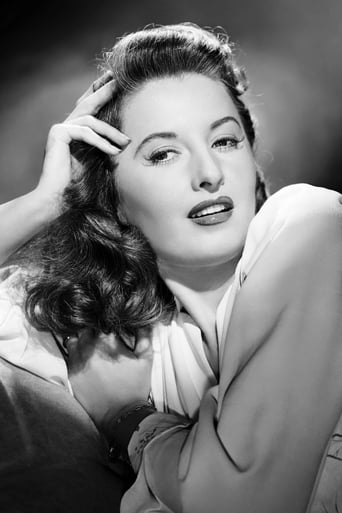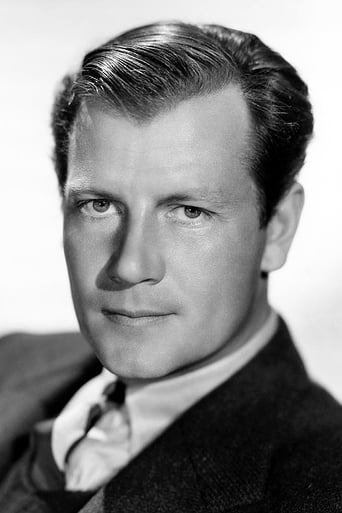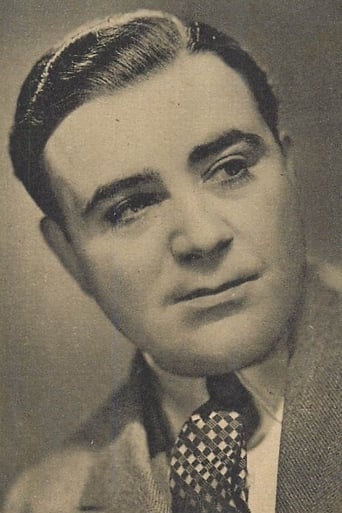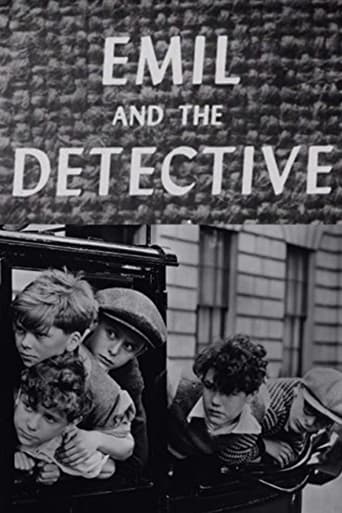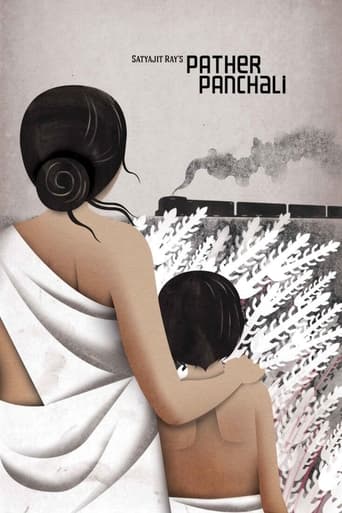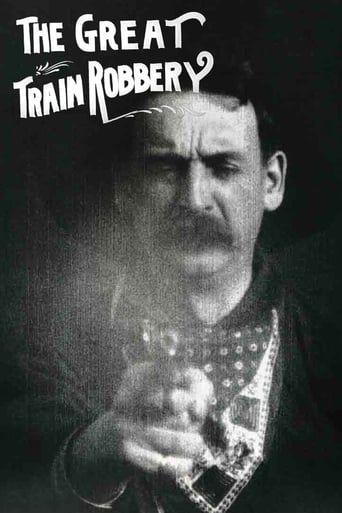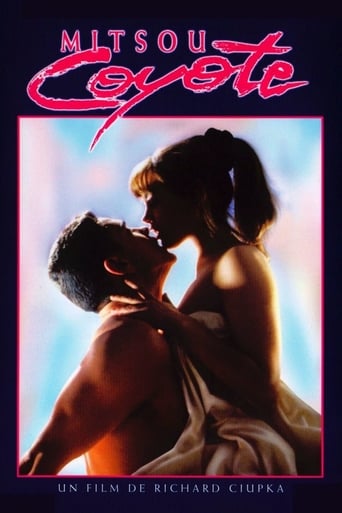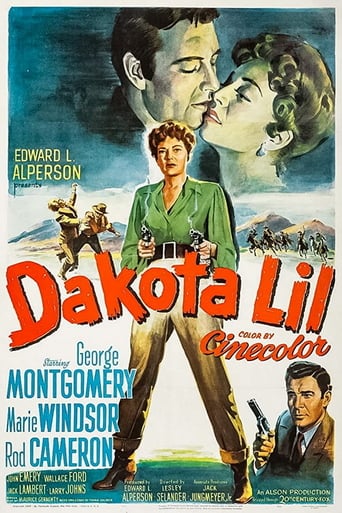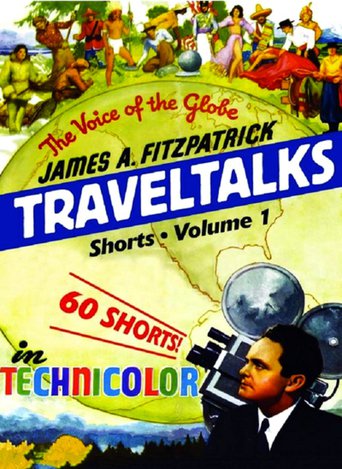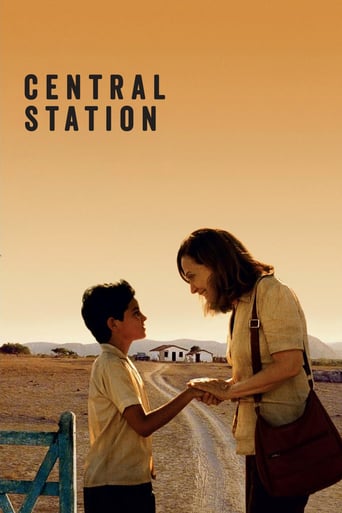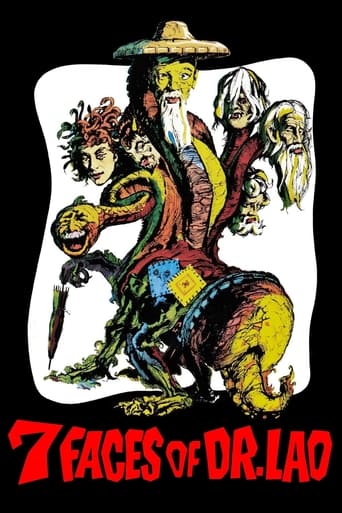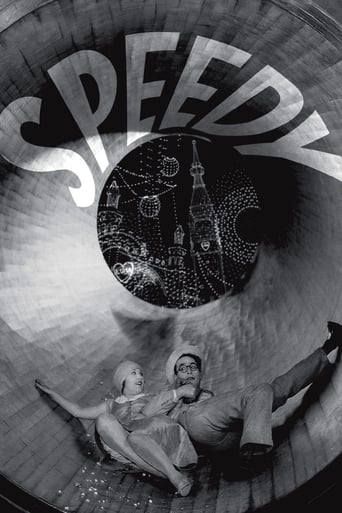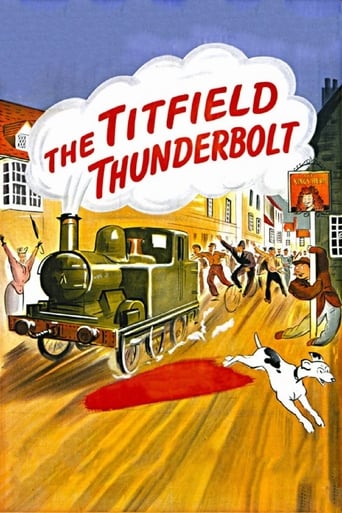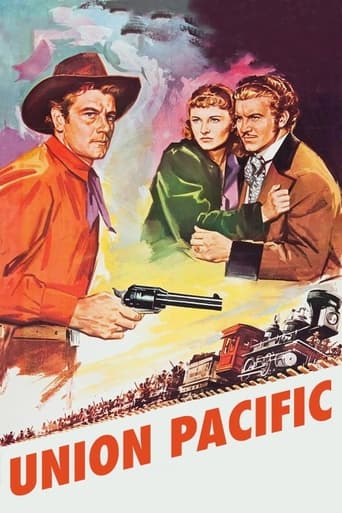
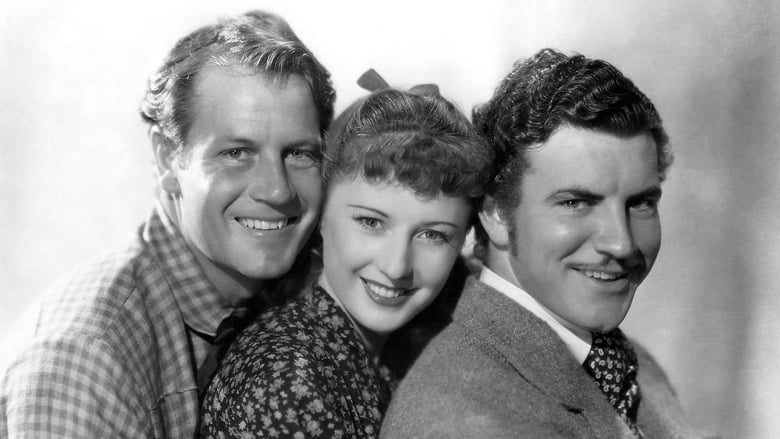
Union Pacific (1939)
One of the last bills signed by President Lincoln authorizes pushing the Union Pacific Railroad across the wilderness to California. But financial opportunist Asa Barrows hopes to profit from obstructing it. Chief troubleshooter Jeff Butler has his hands full fighting Barrows' agent, gambler Sid Campeau; Campeau's partner Dick Allen is Jeff's war buddy and rival suitor for engineer's daughter Molly Monahan. Who will survive the effort to push the railroad through at any cost?
Watch Trailer
Cast


Similar titles
Reviews
Too much of everything
Sorry, this movie sucks
Instant Favorite.
Through painfully honest and emotional moments, the movie becomes irresistibly relatable
This is my first Cecil B. DeMille movie and it's enough to demonstrate his reputation for epic productions (that are more visual than substantial). Union Pacific is about the titular railroad that runs from oh, somewhere to the West. It's based on US history at a time when the Americans were expanding from East to West (and ridding the country of those pesky Native Americans). The movie, at 135 minutes, takes quite a lot of time to explain the situation. It's kinda interesting so it's not a bad thing. What does make his production feel bloated though, is that the climax of the movie happens about a half hour before it actually ends, after which it just drags on as it attempts to tie up loose ends, much like The Return of the King. Barbara Stanwyck is great as always, even if hearing her speak with an Irish accent the whole time is a bit distracting. Joel McCrea is forgettable again. I don't know how he does it but he alternates between captivating and forgettable on screen. I thought that maybe he stands out more in comedies but no, I remembered I first really paid attention to him in Hitchcock's Foreign Correspondent. I guess it just takes the right vehicle or director.
In addition to his talents as a director, as a producer Cecil B. DeMille had a knack for simultaneously jumping on board the latest fad, and finding a niche that only he could fill. Union Pacific takes advantage of the 1939 Western revival, but while pictures like Stagecoach, Jesse James and Dodge City were still moderately-budgeted affairs, DeMille fulfils his obligation to make an epic Western, with thousands of extras, pyrotechnics and a two hour-plus runtime.DeMille may have been a savvy trend follower, but this didn't make him versatile as a director. What is particularly striking about Union Pacific, and indeed all of DeMille's Westerns, is that it does not show off the landscape. Most of the action takes place inside railway carriages or crowded gambling dens, and whenever the wilderness is glimpsed it seems merely coincidental, and is never breathtaking or evocative. Even in the handful of outdoor scenes, it appears DeMille only feels comfortable if he can build a wall of extras. But then again, choreography of crowds is part and parcel of DeMille's style, serving not only as a backdrop but as a part of storytelling method. Take for example the opening scene at the senate. While the anti-railroad speaker is talking, people mill about distractingly, as if discrediting his words. Then when Dodge speaks everyone in the background sits still, encouraging us to focus purely on him.While most of DeMille's silent pictures were penned by the brilliantly demented Jeanie Macpherson, for his sound features he had a revolving committee of untalented hacks. Union Pacific had no less than four credited screenwriters and three uncredited contributors, none of whom was especially prestigious, and the result is as dull as, if not duller than the average DeMille screenplay of this period. Unusually though it makes a few attempts at poignancy, most notably the scene in which Regis Toomey ("Paddy") gets shot. But what scuppers this scene as a genuine tearjerker is not the way DeMille shoots it, which is fairly sensitive, but its handling in the script. For one thing, there has not been enough establishment of this character and thus no emotional backdrop, and secondly Barbara Stanwyck's cod-poetic dialogue is corny even by 1930s standards.By and large though, DeMille's aim is as usual to dazzle and excite us, not to make us laugh or cry. Throughout his career he seldom dealt with emotional material, and here he shoots the dramatic scenes with functionality to give clarity to the story. With the increasingly sprawling narratives of the pictures he was now making, it was necessary to introduce little devices to help us keep track of the secondary characters, an example here being Brian Donlevy dipping his cigars in whiskey.As to the cast, DeMille always appears to have chosen actors for having the right look rather than bags of talent. Joel McCrea fits in with the pattern of handsome-yet-rugged types that made the lead men in DeMille's 1936-1947 output. Usually it would be Gary Cooper, and like Coop McCrea is by no means a bad actor, it's just that he requires a director who was a good acting coach to set him off. Barbara Stanwyck is a notch better, and she emotes well, but her attempt at an Irish accent and demeanour is grating. While there are some great names among the supporting cast, all of them are sadly below par here.Perhaps more than anything, Union Pacific fails because it does not really capture the spirit of the Western. Aside from DeMille's not making the most of the scenery, you just don't get a feel of the pioneer life. It doesn't make us believe that its characters ever had to camp out under the stars or came home covered in the dust of the plains. While some historical arenas were natural DeMille territory – Judea, ancient Rome, the Caribbean in the golden age of piracy – the old west is one he should have left alone.
It doesn't suffer from any of his usual flaws. The pacing is perfect, the acting is not at all stilted, and the technical aspects don't dominate the story or the characters. The story centers around the building of the titular railroad. A banker hires a motley group of gamblers and whoremongers (led by Brian Donlevy) to slow down production and then invests in the Central Pacific. Joel McCrea plays a railroad cop, basically, who sees that Donlevy is trouble. He can't outright kick him out, because his army buddy and best friend (Robert Preston) is Donlevy's partner. To further complicate the relationship between McCrea and Preston, there is a girl caught between them (Barbara Stanwyck). It's a great story supported by fine performances all around. While the film runs for 2 hours and 19 minutes, it never seemed boring at all. There are several exciting setpieces, most notably an Indian attack. There are also a couple of great suspense sequences. I loved the scene where McCrea corners Preston and Stanwyck after the payroll has been stolen. It goes on for a long time but the suspense never breaks. Generally I don't think DeMille has skill enough to pull something like that off. My only real problem is that sometimes the good guys are as bad as the villains. McCrea has two sidekicks, played by Akim Tamiroff and Lynne Overman, who can't help but be referred to as henchmen. I mean, even the characters' names are sinister, Fiesta and Leach. Donlevy has a couple of henchmen as well (Anthony Quinn in an early role and Robert Barrat), and they aren't any scarier.
Amidst the glamour of "Gone With the Wind" and "The Wizard of Oz", this b&w Cecil B. DeMille Historical Fiction Classic received its share of eager 1939 movie theatre audiences. Starring a wholesome Irish immigrant Barbara Stanwyck, a noble law man Joel McCrae and a dashing dare devil Robert Preston, "Union Pacific" delivers a love-triangle centered around the historic 1869 joining of rail road tracks to connect the Western and Eastern borders of the United States. The love story is "formula", but delivers several "moments" where many viewers will fumble for their Kleenex. The climactic final scene showing the pay-off for all of the material and human sacrifices is priceless!The very last of DeMille's b&w ventures, Union Pacific is one of those gems that endured the test of time, endearing the "glorious black and white" to generations of viewers. I first saw this classic as a child; I loved it then, as I still do today. Of all of the Hollywood movies ever produced, no single year of film-making has ever stood out from the rest like 1939. "Union Pacific" helped solidify this status. A true Hollywood Classic!


